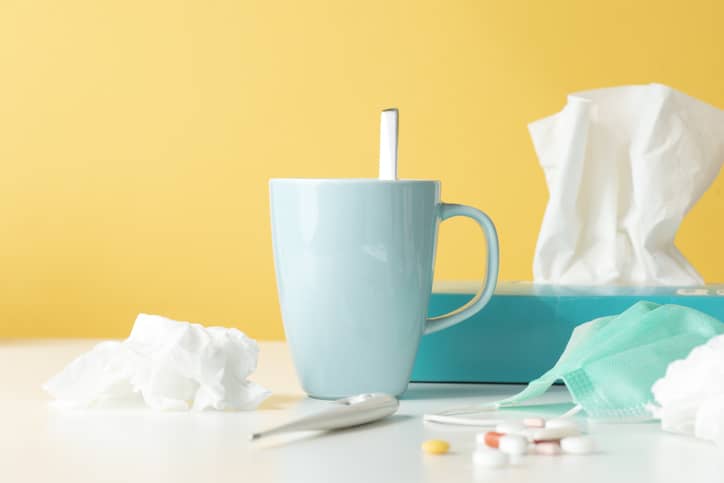Coronavirus
If you have a new or ongoing cough, a high temperature (fever) or you've noticed a change in your sense of smell or taste, you may have coronavirus (COVID-19). Read more about coronavirus or use our Coronavirus Risk Assessment to check your risk.
From echinacea to garlic, many natural remedies are said to either cure or shorten a cold.
But have you ever explored how well these remedies work?
It’s worth doing so, because if you dig a little deeper you may find that age-old natural treatments are not as effective as you may think.
Read on to discover the science behind 7 of the most popular natural cold remedies.
1. Echinacea
Echinacea is a flowering herb that’s supposed to help you fight off colds. But does it work? Evidence suggests it can boost your immune system and speed up recovery time by increasing your white blood cell count. However, most clinical studies show mixed results and the overall finding is that there’s no evidence that echinacea can help to cure a cold.
2. Chicken soup
Chicken soup is an age-old natural cold remedy, but can a bowl of steaming hot broth really help you fight off a viral infection?
There is evidence to suggest that chicken soup helps to fight inflammation, which means that the occasional bowl may provide relief from symptoms like a runny nose, cough or sore throat. The steam from hot drinks and soups can also help to clear your airways and reduce congestion.
However, the evidence for chicken soup’s health-boosting properties is weak. There’s no harm in enjoying a bowl of chicken soup as part of a balanced diet, but more research is needed to draw a full conclusion.
3. Vitamin C
Vitamin C is supposed to support immune function and defend your body from viral infections. There is some evidence to show that vitamin C helps to reduce the severity of a cold, but organisations like The National Institute for Health and Care Excellence (NICE) don’t recommend that you take extra vitamin supplements to fight a cold.
4. Gargling with salt water
Gargling with warm salt water won’t speed up your recovery but it may help to soothe a sore throat. You can do this by:
- dissolving half a teaspoon of salt in a glass of warm water
- gargling with the solution for 10 to 20 seconds
- spitting out the solution
The salt should help to draw some of the fluid from the inflamed tissues in your throat, relieving pain and inflammation for a short amount of time.
5. Garlic
Garlic is a popular home remedy that’s supposed to boost your immune system and help fight viral infections. It's been used as a cold remedy for centuries. However, clinical studies don’t support the idea that garlic can help to cure a cold and most show mixed results.
Instead of trying to eat more garlic, focus on eating a balanced diet. There’s no need to ‘starve a cold’, and eating well may help your body to fight off an infection.
6. Essential oils
Some essential oils are marketed as a cure for the common cold. Rose oil, for example, is said to help fight inflammation. And eucalyptus oil is supposed to have antiseptic qualities that can help you fight off a virus. Despite these claims, there’s no real evidence that essential oils can help you get over a cold.
7. Homeopathic cold remedies
Homeopathy is a 'treatment' based on using natural substances. While fans of this form of alternative medicine recommend remedies like influenzinum/bacillinum and pulsatilla for a cold and its symptoms, scientific evidence to support its effectiveness is lacking. There’s currently no evidence that homeopathic medicines help to fight a cold.
As this article suggests, few popular natural cold remedies effectively cure a cold. If you’re struggling to manage the symptoms of a cold, this article on how to treat a cold at home may be useful.


